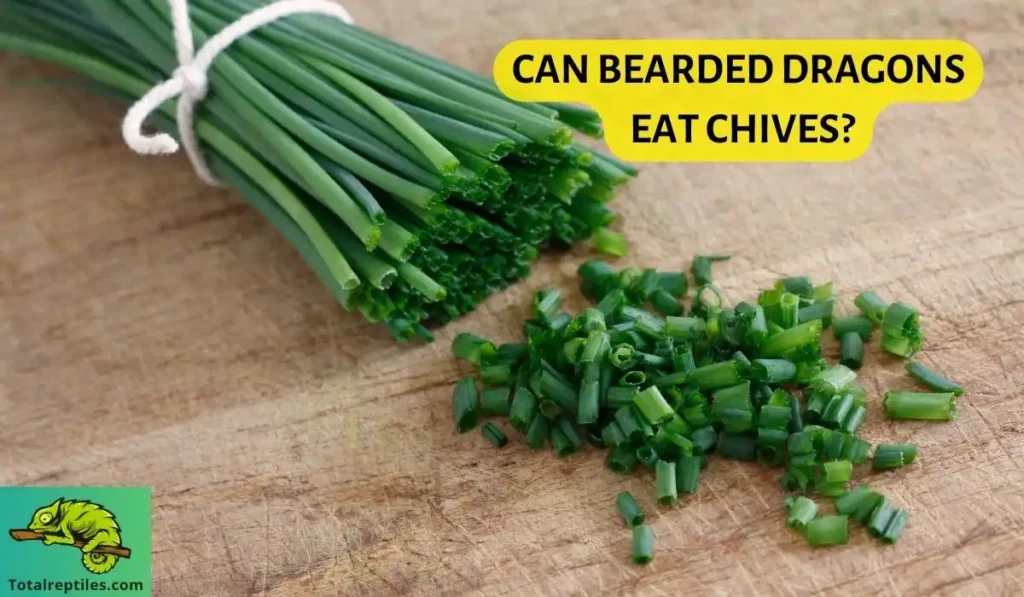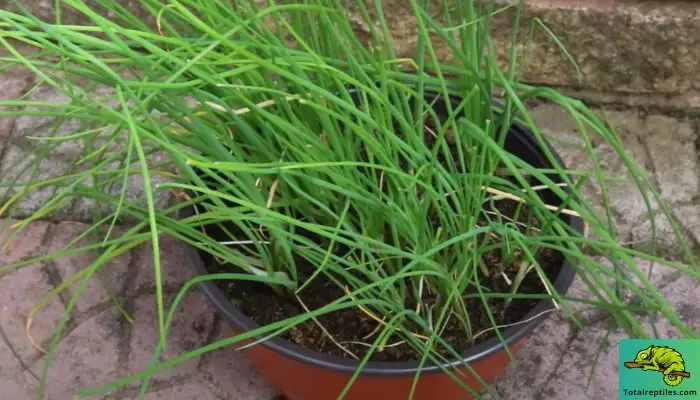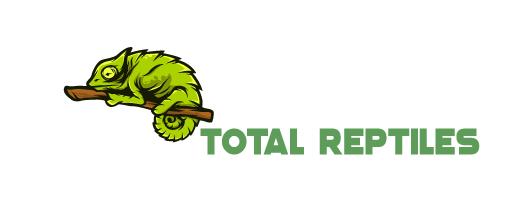The answer is a cautious yes. Bearded dragons, being omnivores, can consume chives, but it’s essential to exercise moderation. Chives, like other spices, contain minerals. So, if it is consumed excessively, it could pose digestive challenges and potentially harm your reptile’s health.
As a responsible owner, consider using chives as an occasional garnish, ensuring that your bearded dragon’s primary diet consists of appropriate staples.
While chives boast beneficial components such as oxalic acid, phosphorus, calcium, and vitamin A, remember that too much of a good thing may have adverse effects. Prioritize a well-balanced and varied diet for your scaly friend’s optimal well-being.

Bearded Dragons Eat Chives: Potential Benefits and Risks
Here we will explore the potential benefits and risks associated with feeding chives to these reptiles in detail –
Benefits of Feeding Chives to Bearded Dragons:
1/ Nutritional Value: Chives, an onion family member, contain certain essential nutrients that can benefit bearded dragons in moderation. These include:
- Vitamins: Chives are a good source of vitamin A, which is crucial for maintaining healthy skin.
- Minerals: Onion chive seeds contain minerals like calcium and phosphorus, essential to reptile growth and bone health.
Check the Chive’s detailed nutrition values below chart –
Nutrition Chart (per 100g of Chives)
| Nutrient | Amount |
| Calories | 30 |
| Carbohydrates | 4.4g |
| Protein | 3.2g |
| Fat | 0.7g |
| Fiber | 2.5g |
| Calcium | 92mg |
| Phosphorus | 58mg |
| Vitamin A | 4350IU |
Two/ Variety in Diet: Bearded dragons thrive on a diverse diet, and chives can add variety to their meals. Different plant-based foods, including chives, can help stimulate their appetite and provide enrichment.
3/ Flavor and Aroma: Chives have a distinct flavor and aroma that can enhance the palatability of the bearded dragon’s diet. Introducing chives as an occasional garnish can make their meals more enticing.
Risks and Considerations:
1/ Digestive Issues: Like other spices, Chives can be challenging for the digestive system of bearded dragons if consumed in excess. Some potential risks include.
2/ Irritation: Chives contain compounds that may irritate the digestive tract of bearded dragons, leading to discomfort and potential digestive disturbances.
3/ Oxalic Acid: Taking a large amount of chives can cause oxalic acid crystals to form that interfere with calcium absorption.
4/ Mineral Imbalance: An imbalance can harm the bearded dragon even though chives contain minerals such as calcium and phosphorus.
Care should be taken to maintain an appropriate calcium-to-phosphorus ratio in their overall diet.
Learn more: CAN BEARDED DRAGONS EAT CLOVERS?
How to Offer Chives To Your Bearded Dragon: Feeding Guidelines
When offering chives to your bearded dragon, it’s crucial to follow these guidelines:

Moderation: Chives should be used sparingly and as an occasional addition to their regular diet. Avoid overfeeding chives, as excessive consumption can lead to digestive issues and mineral imbalances.
Fresh and Organic: Choose fresh chives from a reputable source or consider growing them yourself. Opt for organic chives to minimize the risk of pesticide or chemical exposure.
Thoroughly Washed: Remove any dirt, pesticides, or contaminants before you feed chives to your bearded dragon.
Cut into Bite-sized Pieces: Cut the chives into small, bite-sized pieces appropriate for your bearded dragon’s size. This will make it easier for them to consume and digest.
Observe Your Dragon’s Response: Introduce chives gradually into your bearded dragon’s diet and closely monitor their response. If you notice any adverse reactions, such as digestive disturbances or loss of appetite, discontinue feeding chives immediately.
conclusion
Keep spice up your bearded dragon’s meals with a sprinkle of chives! These aromatic herbs can add flavor and provide some nutritional benefits.
Just remember to moderate chives to avoid potential digestive issues and mineral imbalances.
Plant-based foods are key to a healthy diet, including various well-balanced foods.
To maintain a happy, vibrant bearded dragon, consult a reptile veterinarian when in doubt.
Keep their taste buds satisfied while prioritizing their well-being!

